A conversation in which two Arabic to English translators and scholars consider language and Gaza with respect to the West's racism and indifference. Huda Fakhreddine and Yasmeen Hanoosh are scholars of Arabic literature, authors of Arabic literary works, and Arabic-English literary translators who are currently witnessing the travails of ethnic cleaning and genocide in Gaza from their American diasporic locales. Each has grown up in warzones in Lebanon and Iraq respectively. In this conversation, they assess their encounter with the empire, the academic and literary hegemony of imperial culture, and the impasse of the colonized translator.
Yasmeen Hanoosh: Let’s start from the beginning of your literary journey. You’ve been writing interchangeably in Arabic and English since the start of your career. You also translate self and texts comfortably into and between these languages. Who, or what, should get credit for luring you into the magical realm of language — and for your impressive literary command of both languages?
Huda Fakhreddine: I have been in this space, what you beautifully refer to as the “magical realm of language,” for as long as I can remember. My very first memories are of sounds, of my grandfather’s voice reciting poetry. It is a tradition in our family to rock babies to sleep with poems, and my grandfather had his own repertoire of poems he loved. He’d recite them as lullabies. Two of his favorites that have become constant echoes in my head are al-Shanfara’s Lāmiyyat al-ʿarab, muʿallaqat Labid, and Abu Firas al-Hamadani’s Arāka asiyya al-dam I’ve memorized the opening lines of these poems since I was three or four. Without understanding what the lines meant, their sound took me home, to a sense of safety and family.
Growing up in wartime Beirut, my parents, my younger brother Ali, and I spent a lot of time in the car, traveling between Beirut and our village in the south and from one corner of Beirut to another, depending on where was less dangerous. In the car, my father would often recite poems and sing. He too had a repertoire of favorite poems that I learned, even before I learned to speak, as early as I became conscious of sound and learned to listen. Both my father and mother would often sing together as well. They would sing Umm Kulthum and Abd al-Wahab songs and these too were often qasā’id, classical poems. Abu Firas would make an appearance here again, also Ahmad Shawqi, and Ali Mahmoud Taha, and Ibrahim Naji. These were the sounds of my childhood. I often think back at that space in that car, moving across a burning city and a country at war. I am filled with warmth and a longing for that unexpected space of safety that my parents created for us with poetry.
YH: It’s fortunate to have had access to that haven of sounds and meanings as a child when so much else presented a threat to life, and to the very meanings that dissipate when life is threatened. Through the poems your parents recited and sang they transmitted a sense of safety, as you say, and perhaps also found a way of affirming life for their children when so much death surrounded all of you. One could say that poetry was how they translated the self. In translating the self, in what we might call intralingual translation, how do you, Huda, translate your thoughts in English vs. Arabic? Are the thoughts or feelings different in each language?
HF: I became acutely aware of translation when I first moved to the US as a graduate student in 2005. I came to this country to study Arabic poetry. I was acutely aware of the irony of that from the start, but I could not have imagined the degree of disillusionment that I had to face navigating the academic system as an Arab student in “area studies.” I felt constantly violated, compromised, and translated, translated by others. Thus, translation became my battlefield, a space where I could reclaim agency and rewrite what was already violently rewritten and reclaim it in some way.
YH: The question of translating “the self” is also closely tied to the question of reception. I decided to switch back to Arabic when I started writing my first short story collection, for example, because I realized I was addressing an imagined audience from the local, intimate places of my Iraqi childhood. English felt like an inapplicable language for that pursuit. When you alternate writing about Gaza in two separate languages are you also speaking to different implied audiences? In what ways is your implied Arabic-reading audience oriented differently from your English-reading audience vis-à-vis Palestine? Do their different orientations consciously affect your choice of content?
HF: When I write in Arabic I can breathe. I don’t necessarily think of an immediate audience. I perhaps think of that first space, my first encounter with language, not Arabic specifically but language as an idea, as sound, as magic. When I write in Arabic, I try to connect with that first encounter and with the centuries-old memory of poetry I have accumulated over the years and which is intimately tied to my sense of self, that which I think I am or would like to be.
When I write in English I am on alert, never really at ease. In my mind, there is an other, an uninterest or and often hostile other. In English, I write/speak back. I feel that I must constantly prove something or turn something on its head. My English sentence must end with a punch; it has to reclaim or debunk something. That’s why in English I am on my guard and out of breath. Translation is a place in between, between existing and fighting to exist, between voice and silence, between an exhale and a breath held in.
But all languages and the spaces between them have now become inadequate in the moment of Gaza. There’s nothing but rage and despair in languages. I don’t know how much horror and grief a language, any language, can contain. It feels as if there is no one on the other side of any utterance, nothing but horror in a world that allows this genocide to happen and despair in ourselves for witnessing it so helplessly.
YH: This takes me to my next question, which is about the power of shorthand utterances and unpacking them for meaning. “Gaza is our moral compass,” you have said more than once this past year. In this context of moral rectitude and the prerogative to speak out in times of genocide, what is the value of translating extra-lexicographical utterances? The definition of such utterances — like “intifada,” “free Palestine,” and “from the river to the sea” — cannot transcend the heading (much like Roland Barthes’ I-Love-You), and bear too many layers of meaning for one system of ethics to hold at once. Is it our prerogative as translators to constantly unpack the cultural, historical, political meanings of these utterances in the language of the amnesiac oppressor, the ahistorical genocide perpetrator? These slogans made people lose their jobs, get expelled from universities, break into tears before the US Congress, and be branded antisemitic. However, do they bear the capacity to alter oppressive power systems or fix broken moral compasses? Are there still words that could awaken the deaf ears upon which millions of wise words have already fallen to no avail, so to speak? Or are these ears with which we should not be concerned?
HF: I resent the translator’s burden, especially since it is always much heavier on the shoulders of the oppressed. I do not want to translate or comment on or justify or unpack or defend phrases like “intifada,” “free Palestine,” and “from the river to the sea.” I shouldn’t have to. These phrases are not only facts, but also truths. And while facts may be refuted and argued with, truth is irrefutable like the light of day, like pain.
The truth of Palestine is evident, as clear as the eye of the sun (as we say in Arabic), on the land, in time and in place, on aged hands that still hold on to keys, and on the faces of babies born in genocide today. Corrupt power suppresses truth with lies and hypocrisy, by demonizing, distorting, and censoring language, when it doesn’t have the moral and intellectual ability to argue against it. This is what the racist anti-Palestinian discourse has resorted to on campuses, in the media, in congress and elsewhere. It is only the warped logic of the arrogant oppressors that twists phrases like these and brands them with all kinds of heinous accusations. Even if these phrases and the truths they hold might not have the capacity to fix or alter anything in this moment, it is our responsibility to continue to affirm them. For they are also speech-acts. The very utterance is itself an act of resistance, rebellion, and affirmation of dignity. This is their power, and this is why they agitate the racist, morally bankrupt settler colonial systems so much.
Now, in this moment — after 76 years of dispossession and ethnic cleansing, after more than 400 days of genocide — the ears that do not receive these utterances as urgently and unequivocally as the scream of one in pain or the cry of a newborn, the eyes that do not receive them as light entering a dark room, the bodies that do not embrace them as a deep inhale, as rain falling on a parched land, are all stone walls, dead ends. And yes, we should not be concerned with them.
YH: “Speaking in Gaza’s tongue” الكلام بلسان غزة is a theme that recurs often in what you’ve written since October 7, 2023. What does it mean to you for our Arabic literary heritage or our translations to speak in Gaza’s tongue?
HF: We have spent our lives and our entire histories explaining ourselves culturally and politically for the benefit of an uninterested, arrogant, self-centered other who is often at the same time the oppressor and aggressor who is responsible for our miseries, benefits from them, and then calls on us to unpack them and study them and keep performing in whatever small space allowed to us in the trap of identity politics.
When an undeniable genocide against Palestine and its people is unfolding before our eyes, any study of Arabic literature or culture that does not launch from a recognition of this aggression against all Arab culture and existence is complicit and disingenuous. I would go further and say, any work we do in the sciences and the humanities, any engagement with or consideration of law or governance, of history and the future, any action towards or about children and the elderly, the planet and the climate change, racial justice and human rights…that does not launch from a recognition of the Gaza genocide, without acknowledging it as violence against life itself, is hypocrisy.
It is true that the history of the world is mostly a history of human violence. There have been genocides before this, brutal wars and displacements, savage injustices and oppression. In Lebanon, where I grew up, or Iraq, where you grew up, the list of horrors is endless. However, never before Gaza has violence so been immediately and meticulously documented in real time, streamed to us live 24/7. This is not a genocide that the world learns about a year or a day later. It is savage slaughter that we have been witnessing one child at time and have shamefully now come to anticipate hour by hour. The Gaza genocide is unprecedented in this way, and it has redefined and expanded the meaning and the parameters of complicity in ways that no other horror in history has done.
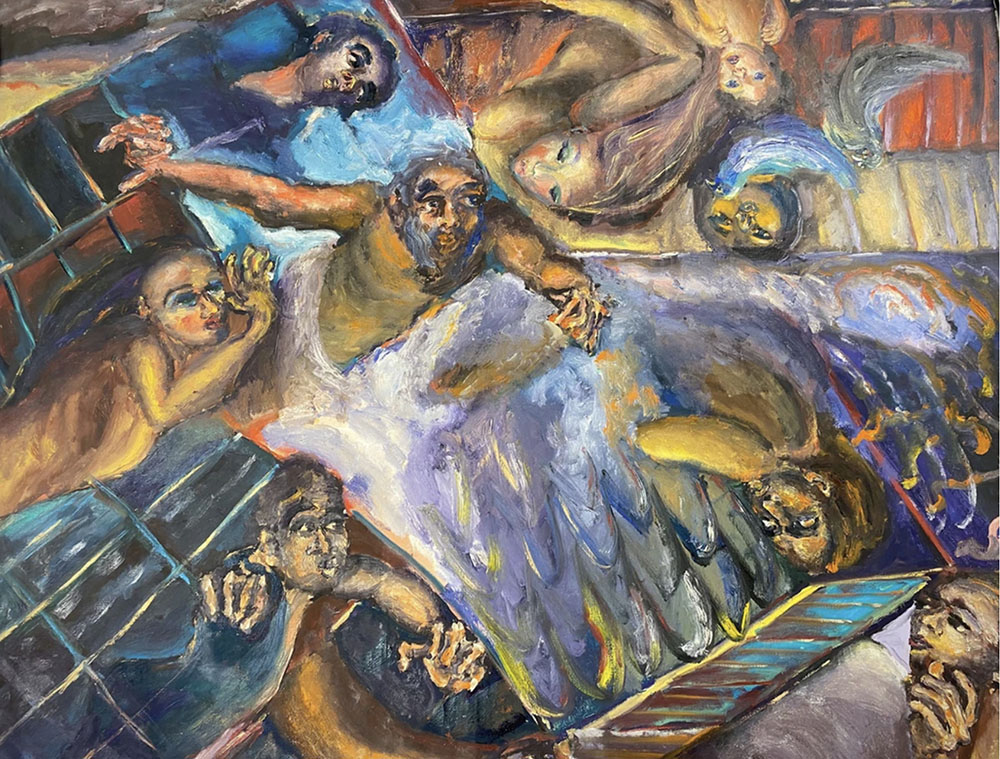
This is what I have in mind when I say that it has become imperative that we speak in Gaza’s tongue from this moment on. And this applies even more forcefully in the small world of literary scholars. Gaza is no longer just a place; Gaza is a locus and ethos; it is a signpost in place that has also become a source point of time. And as readers of Arabic poetry know well, a place can have agency. It can become all of time, past, present, and future. Gaza is our eternal talal, our oracle-ruins. It marks our speech and announces it to the world. It is the source point from which all of time will radiate. It will retell all history before and direct all history after it.
We will continue to be without agency and without integrity if we do not reorient ourselves and our work as such. There are centuries of futility and servility in our cultural life and if a genocide is not enough to teach us that spending ourselves on the altar of Empire is not scholarship and literature and art, nothing will.
YH: In the early months of this prolonged genocide, you described translating poems from and about Gaza as a “selfish consolation.” These poems didn’t need you, you claimed. You needed them. In what ways did the act of translating provide you with solace? Do you think writing these poems also provided solace for their Gazan authors, several of whom have been murdered since?
HF: No words could contain the horror we are witnessing in Gaza every day. Yet, all that reaches us from Gaza — words, images, scenes of steadfastness, resistance, and dignity — continues to astonish and console, even if the consolation is negligible compared to the darkness and savagery. Perhaps “consolation” is not the right word. It is the ability to persevere. What we see in Gaza leaves us no room for despair. The people of Gaza are resisting on the frontlines of our humanity. They are protecting what little shreds of human dignity and honor remain. We have failed them miserably, and yet we look to them to remember what it means to be human in the face of savagery; we look to them to find hope in ourselves, as difficult as hope might be.
During the long months of horror we have witnessed in Gaza, I occupied myself with translating the works of some Palestinian poets. At this critical moment in history, we must look to Gaza and its artists and writers for a language, for a way to justify living in a world so utterly dark. Writing and translating in the moment of the massacre may seem futile — poetry cannot repel a missile or hold back the spilled blood — but perhaps it can bear witness, perhaps it can record an alternative history that counters the one the oppressors write.
YH: Whether on social media, in your publications, the classroom, or your public lectures, you have been one of the most vocal and committed scholars when it comes to denouncing the Israeli genocide and amplifying the voice of the Palestinian people. “Let Gaza be our only word,” you even pronounced. Would you say your literary commitment has some of its underpinnings in earlier phases of the ideology of al-adab al-multazim (committed Arabic literature), one of whose prominent platforms for over two decades since the mid-1950s was the Beiruti literary journal al-Adāb? Is it still possible to defend the creed of al-fann li-l-fann (art for art’s sake) or art that inscribes itself against the current of a political context, in times like ours? Is there a discrepancy between iltizam (commitment) and fann li-l-fann for you? In other words, what would you have to say to the pioneers of Shi‘r Magazine were they to approach you about Gaza today?
HF: Not at all. There is no discrepancy between political commitment and aesthetic commitment. On the contrary, for the true artist, not the propagandist, they complement each other and keep each other on track. Art is always necessarily political by virtue of its existence in the world and its intervention in it whether through color or words or shapes or even silence. Political commitment, when pronounced and foregrounded in times of crisis like this, should not be an excuse for mediocrity or aesthetic slippage. Under the banner of ilitzām/political commitment much mediocrity has passed as poetry, now and before, in Arabic and in other languages. Dedication to a cause demands an aesthetic commitment to it as well and a guard against it being used by charlatans. Literature is also often a victim of wars and political crises. What survives of it in the long run, in the aftermath of crisis, is what ultimately proves a commitment to itself as art or literature that stands the test of time. The aesthetic commitment is also proof of the true political commitment to the cause, a commitment that transcends the historical moment.
If you review the literature, particularly the poetry that was written by the politically engaged group around al-Ādāb on one hand, and the proclaimed apolitical group of Shiʿr, on the other hand, you’ll note that they both suffered from making grand claims that rarely translated into convincing poetry. What survived of the two camps, especially their early phases, are a handful of poems, on both sides, which are first and foremost good poems, regardless of the political commitment or ideological posture they embraced.
And today, a true commitment to Palestine demands an artistically discerning and aesthetically unwavering commitment. Because letting anything pass as art and literature under the banner of Palestine is disrespect, exploitation, and violence.
The delusion or false claim that literature could be innocent, pure, and inconsequential and the assumption that literature and literary scholars especially the academics among them, can pretend to carve out careers around Palestine, without having to engage with it and take a stand on it is ludicrous and hypocritical. Any responsible study of literature is one that aims to account for history through literature. Literature never exists in a vacuum and if we pretend that it could we are violently erasing it and/or misrepresenting it, and ourselves too. This doesn’t only apply to scholars of Arabic literature but also all humanists. If you are alive on this planet today, you are living in a time of genocide. You know about it, and it is your responsibility as a human being to protest it and fight it with all you have, otherwise you are complicit. Neutrality is not an option in genocide; neutrality is complicity.
YH: There’s that powerful quote from your provocative “Intifada: On Being an Arabic Literature Professor in a Time of Genocide,” which reflects your strong sense of commitment to values that are clear and concrete:
“I am a scholar and a student of the Arabic poetic tradition. I study poets from Imru’ al-Qays to Mahmoud Darwish, from al-Samaw’al to Hiba Abu Nada. I am not willing to chop up this tradition into palatable and digestible bites. I will not truncate a poem if the ending makes you uncomfortable. I will not interrupt a poet’s conversation with their ancestors just because your Arabic skills are inadequate. I will not reframe myself and my language for your purposes. I will not purge my tongue of words that scare you because you don’t understand them.”
Is any of this difficulty to keep ourselves and our literary corpus intact to be construed as our own shortcoming, the shortcoming of the Arab translator of Arabic language and culture in the west? Are we where we are because we have acquiesced, abbreviated, redacted, and domesticate our literary legacy or have we been always condemned to our confinement and dismemberment within the alienating, reductive, static orientalist tropes and hierarchies of dominance no matter how we attempted to safeguard, expound upon, and contextualize our Arabic poetic canon?
HF: We are colonized. While we speak of the post-colonial and neo-colonial and theorize about them, we have never truly left colonization behind, and this manifests itself most clearly in our relationship with our language and tradition. Our approach to the Arabic literary tradition is one of discomfort, as something to be managed, rehabilitated, and ultimately overcome. This mindset pervades and shapes the way young people in the Arab world are taught Arabic. A “good” education is equated with a foreign one, and the Arabic language, beyond the spoken dialect, is an afterthought. Few families prioritize fostering a deep connection with Arabic. True literacy in the language — one that unlocks its vast intellectual and imaginative worlds — is rarely a priority. Many young, educated Arabs remain functionally illiterate in fushā. Even accomplished professionals — doctors, engineers, educators, public figures — often struggle to write or read a coherent sentence in Arabic. The real tragedy is that this widespread deficiency is not considered a problem. Arab educational systems have absorbed and perpetuated orientalist tropes and hierarchies. They continue to reinforce these narratives, producing generations who view Arabic and its literary traditions as archaic and irrelevant.
As for the Arab in the West, we arrive here or are born here culturally unarmed, unequipped. We become receivers, distorting ourselves or what little of them we can actually claim as ourselves, to fit roles assigned to us as others. We become the stereotypes which we claim to resist. Can you imagine (I’m certain you can) that we have experts in Arabic literature, scholars and professors in this country, both Arab and non-Arab, who cannot speak a single sentence of Arabic? And yet, they pass. They go on to build successful careers and become authorities on some minor, irrelevant detail of Arab culture. Astonishingly, they might never find themselves in a position where they have to use Arabic as a language of thought. And when a calamity befalls the culture they study, when a genocide threatens to eradicate an entire Arabic speaking people, these “authorities” and “experts” are silent, nowhere to seen, in the name of neutrality and academic objectivity which are nothing but new code words for hypocrisy and cowardice.
As colonized subjects, we address a more powerful other, constantly seeking validation from it, even as we claim to reject and resist its power over us. Gaza demands of us a redirection, a despair of this other and a reorientation. Without a solid grounding, a rooting in our language and culture and a respect for them — even when writing in other languages — we lack the tools to truly resist.
YH: This reorientation you describe brings me to my last question, which is about hopes and disillusions for us colonized subjects. You wrote in the above article that “Gaza 2023 is a counterpoint in history, the end of the world as we know it. Nothing should ever be the same after this.” In an ideal post-Gaza 2023 world, a world that has putatively woken up to the reality of the genocide it is collectively perpetrating, and to the hypocrisy and racism that underpin its modern institutions — indeed, the very core of its modernity — what would be the role of Arabic-English translation? How might we fantasize about the gift of translation’s ideal bestowal and reception?
HF: We are not afforded the opportunity to critically engage with our literary tradition. The Arabic literary tradition owes us a critical engagement. Palestine literature still owes us a critical reading. We are not allowed the space for that because we are spent and consumed in our efforts to defend Palestinians’ right to exist as human beings first, and their right to be great, mediocre or bad artists — their mere right to exist. Literature as literature is obscured or postponed. The poem is reduced to expression, to a mark of existence — there is no room to engage with it aesthetically and critically in the moment of the massacre. Empire barely allows us, its subjects, a narrow space to exist and would prefer us to exist on its own terms not ours, as silent tokens of its fake benevolence and tolerance. And this is a grave injustice to the literature of Palestine and the Arab world in general. This country has the patience and the attention span for only a few of us who are tasked with representing entire worlds within Arabic literature, worlds flattened and reduced into palatable, easily digestible and usable bits and soundbites. The Palestinian is one thing, according to this logic, and so is the Lebanese and the Iraqi and the Syrian and so on. This is the very definition of tokenization, stereotyping, and racism.
“Translation’s ideal bestowal and reception” requires respect and equality. Those of us who translate into English are translating into a language that offers us neither. It is a hostile language that we must wrestle with and break in order to create a space for our literature within it by force. And for what? I’m not sure anymore. In this moment of genocide, I am acutely conscious of the deafening silence from the other side. Translation’s gift is a conversation, an exchange between language-worlds that dream of being each other, that speak to each other on equal terms. That’s the ideal fantasy. Sadly, we are as far away from it as could be. We translate into the void. We offer ourselves to a hostile, arrogant other that reciprocates with condescending reductions at best.
I do not have the ability to think of a post-Gaza world now. I don’t think that is even possible. Today — and I am writing to you on day 443 of slaughter, two days away from a second Christmas in genocide — Gazans are being burned alive in the “holy land,” nailed on the cross of apartheid, arrogant supremacy, and blatant racism for a silent, despicable world to see. I do not know what survival means anymore, even for those of us oceans away.



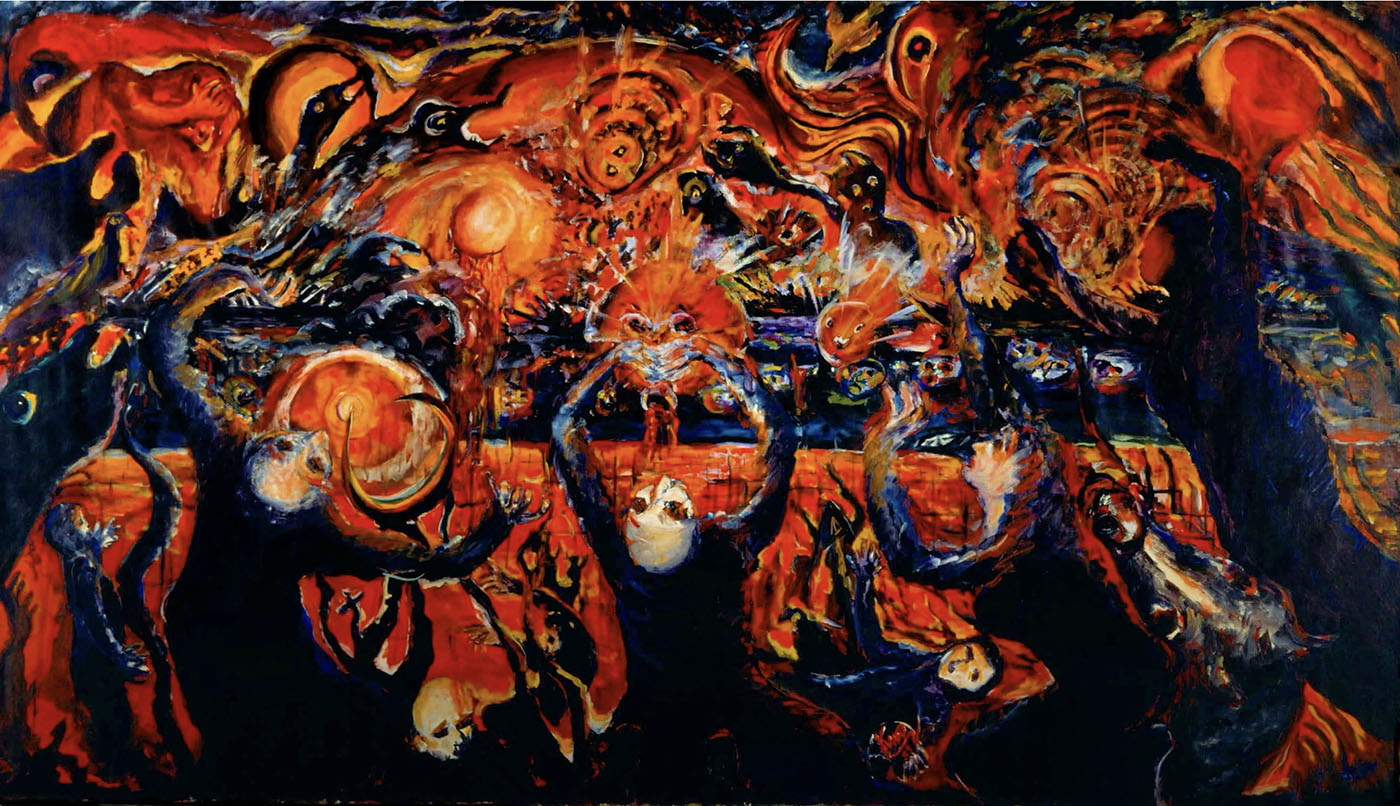
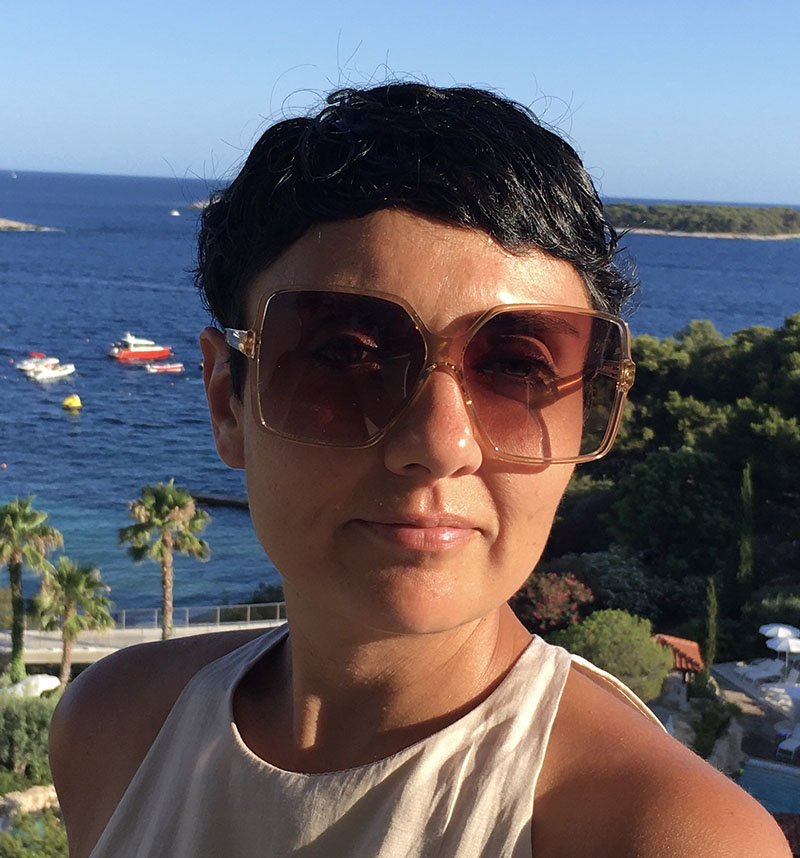


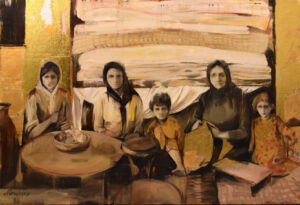


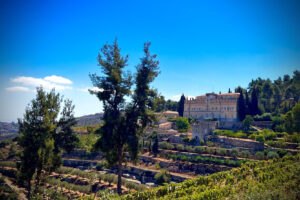










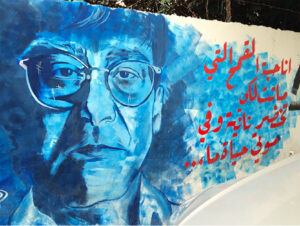

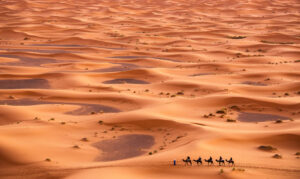










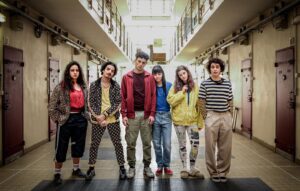




















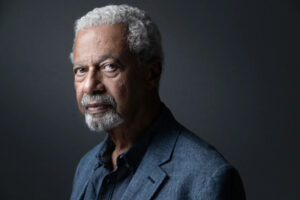
















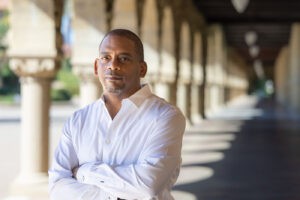
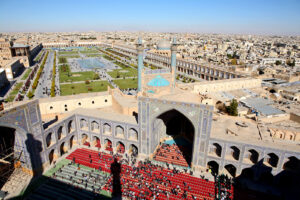



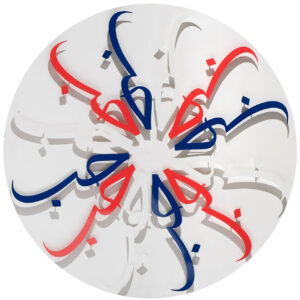
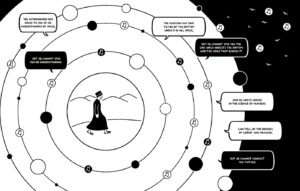



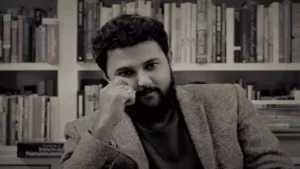














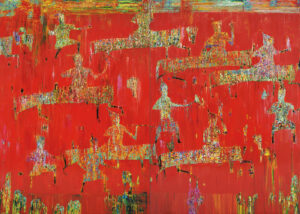






































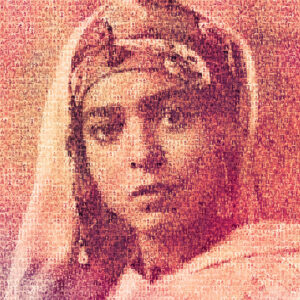







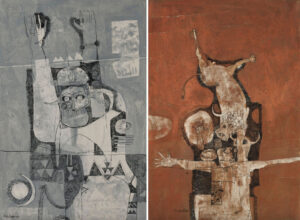








![Fady Joudah’s <em>[…]</em> Dares Us to Listen to Palestinian Words—and Silences](https://themarkaz.org/wp-content/uploads/2024/03/SAMAH-SHIHADI-DAIR-AL-QASSI-charcoal-on-paper-100x60-cm-2023-courtesy-Tabari-Artspace-300x180.jpg)













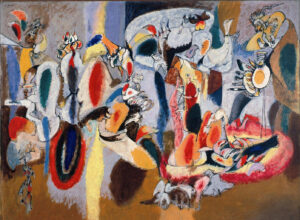



































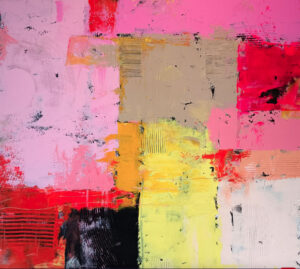

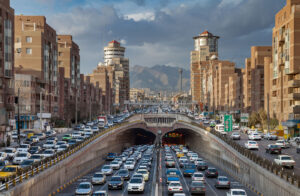

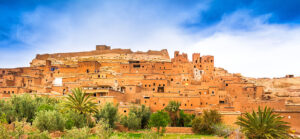

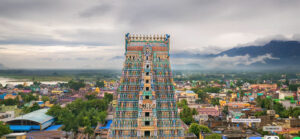
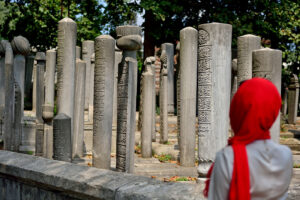


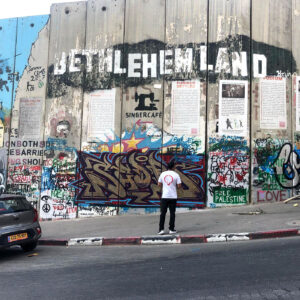
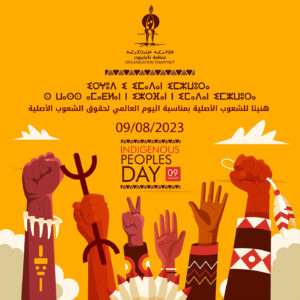







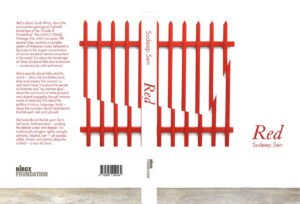


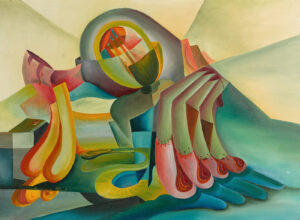
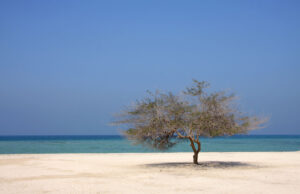














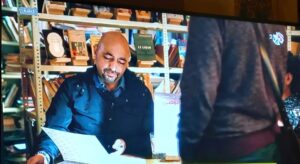




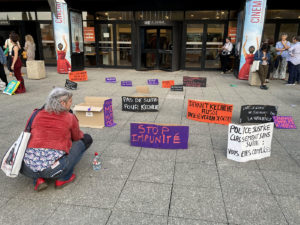
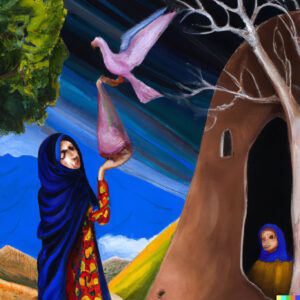






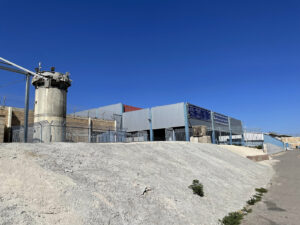


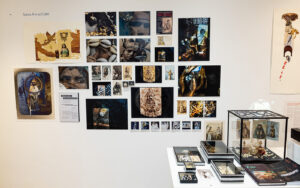





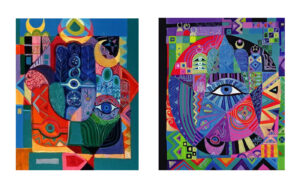

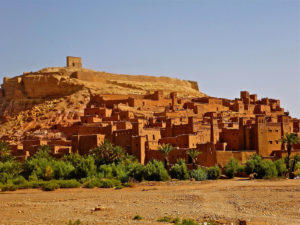

























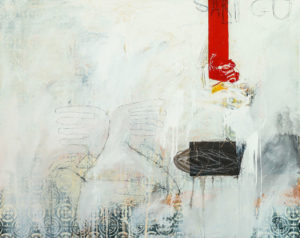


























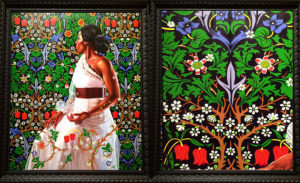










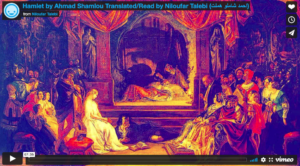



Great. This nation has produced thousands of scholars.
Pingback: Translation and the Diasporic Subjectivity – ARABLIT & ARABLIT QUARTERLY